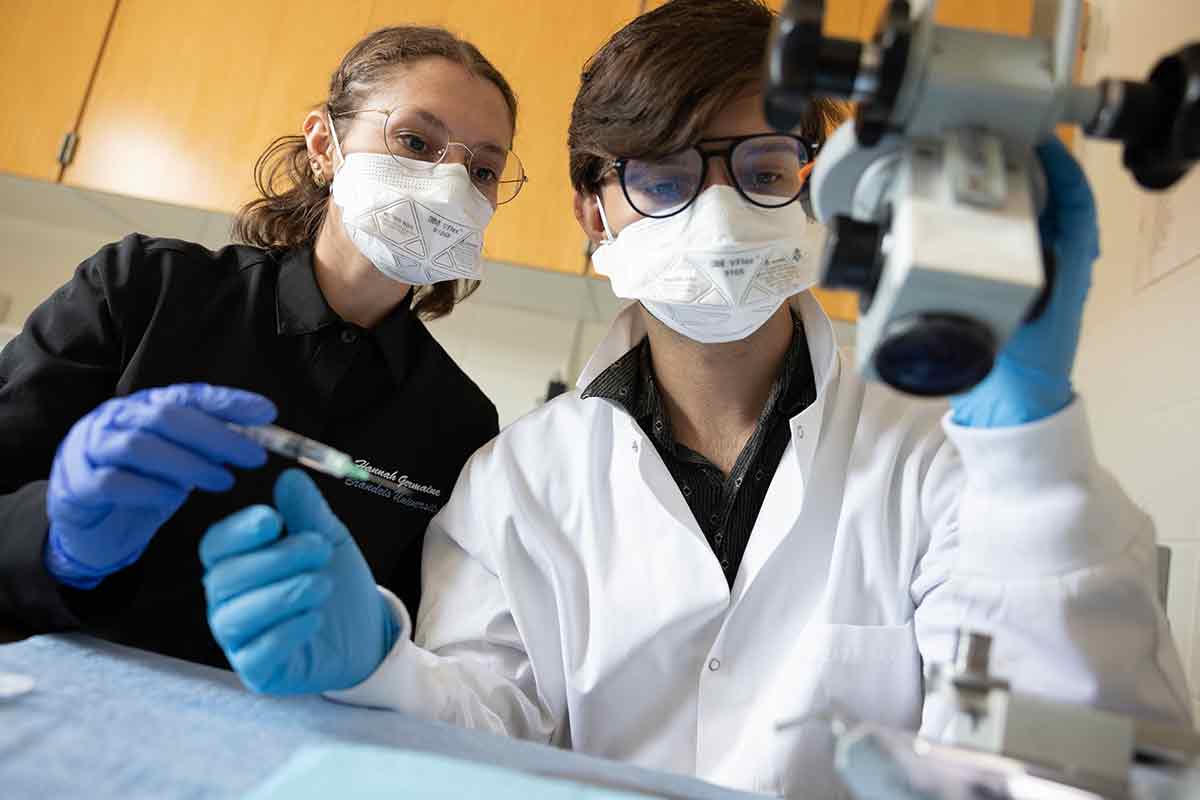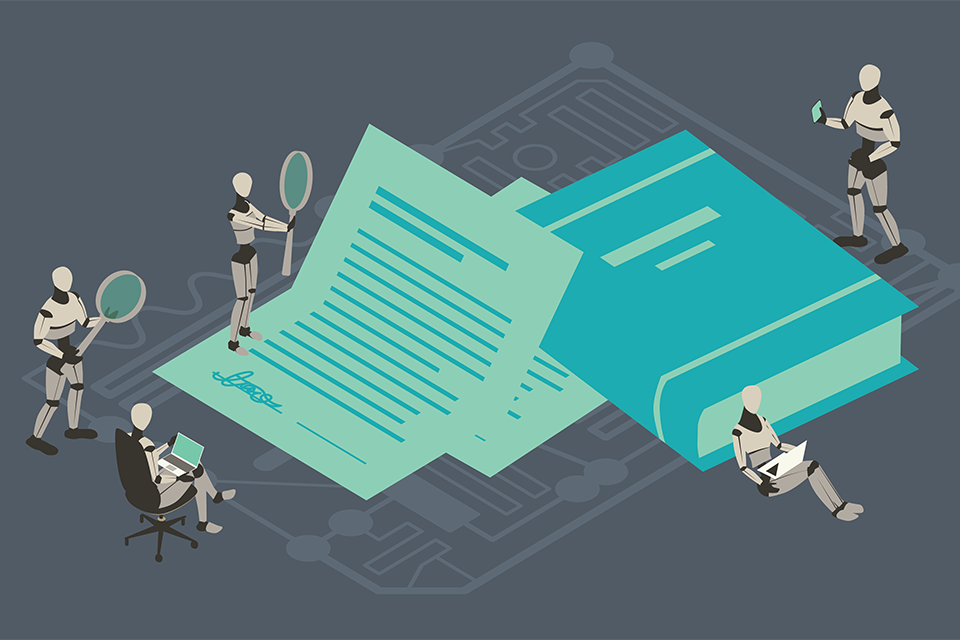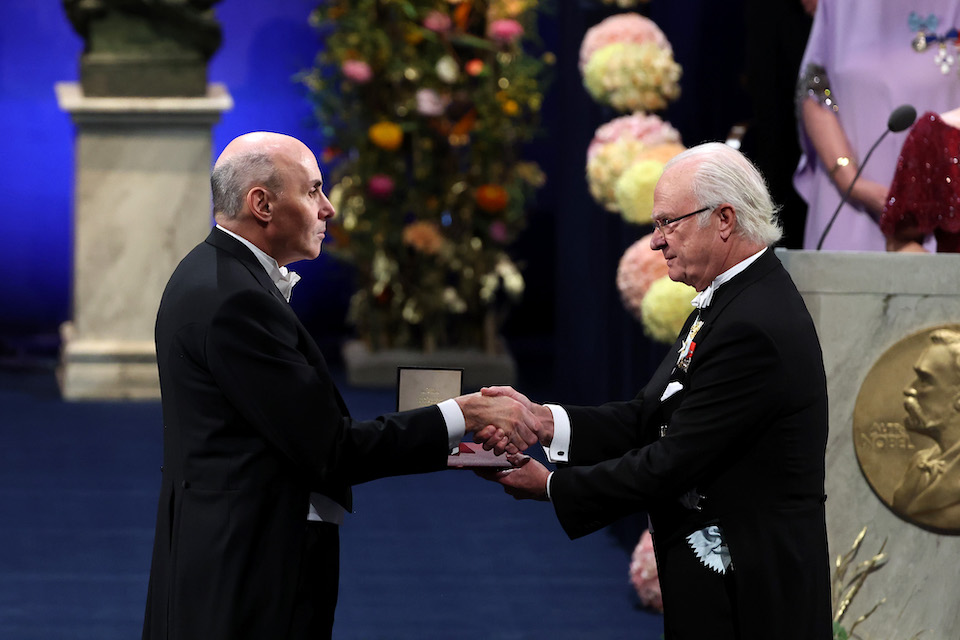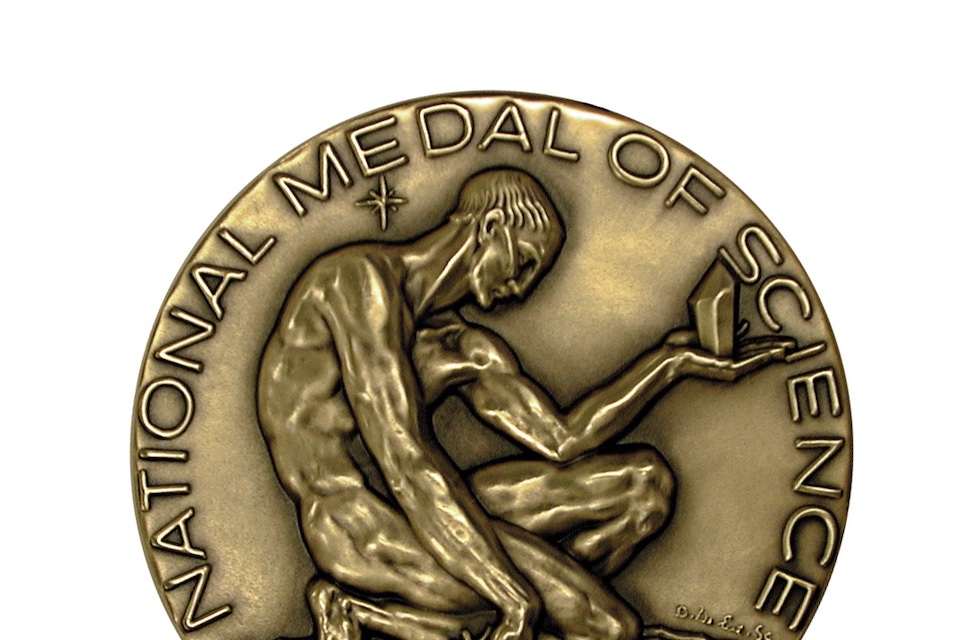At the intersection of taste and smell

Photo Credit: Dan Holmes
By Kennedy Ryan
July 27, 2023
While some spend their summer at the beach basking in the sun, students from the Graduate School of Arts and Sciences are hard at work on their research.
Brandeis Stories spoke with Thomas Gray, a neuroscience PhD candidate, to learn more about his summer in the lab.
How would you summarize your research focus in under 300 words?
My research focuses on the intersection of taste and smell processing in the brain. While it is widely known that odors influence our perception of food, there is a lack of research investigating the communication between the taste and smell processing regions in the brain. My thesis revolves around unraveling the distinct processing of smells that enter through the mouth compared to those perceived solely through the nose.
Although these odors are processed by the same receptors, it appears that when an odor enters through the mouth and exits through the nose, our taste cortex starts interacting with our smell cortex. Conversely, this phenomenon does not occur when we exclusively smell odors through our nose. The intriguing cross-talk between brain regions traditionally associated with processing distinct senses is what captivates me in the field of neuroscience.
What is your ‘why’? What inspires you to do this research?
Inspired by my mother and my family in Colombia, I am motivated to pursue research. My mother immigrated to the U.S. with my sister, seeking better opportunities for our lives. She instilled in me the value of pursuing my interests and provided the freedom to explore any subject that intrigued me. Neuroscience emerged as a truly fascinating field, as it addresses the most intriguing questions about how we perceive the world around us and utilize that information to make decisions.
What are you hoping will be your biggest takeaway from this summer’s research experience?
This summer, my main focus revolves around supporting and guiding my undergraduate research assistant, Isaac Goldstein ’25, as he undertakes his first independent project. With the aim of providing mentorship and assistance, we are collaborating on various aspects of his project. Together, we are formulating research questions, conducting experiments, and analyzing data, all geared towards fostering his research skills and cultivating a sense of ownership in his work. The anticipation builds as we look forward to the culmination of his efforts at Brandeis' SciFest, where he will have the opportunity to present his findings to the scientific community.
“The intriguing cross-talk between brain regions traditionally associated with processing distinct senses is what captivates me in the field of neuroscience.”
Simultaneously, I am investing time and effort into preparing a grant proposal for the National Institutes of Health. This proposal represents a significant step towards securing funding to advance my own research and contribute to the scientific knowledge in my field. Through extensive literature review, refining research objectives, and designing a comprehensive methodology, I aim to develop a compelling case for the significance and potential impact of my work. The grant application process also provides an opportunity for personal and professional growth, as it allows me to sharpen my scientific communication skills and demonstrate my potential as an independent researcher.
As the summer unfolds, I am dedicated to both developing my research assistant's research skills and advancing my own research through the grant application. These endeavors reflect my commitment to supporting young researchers, and making meaningful contributions to the field of neuroscience.


